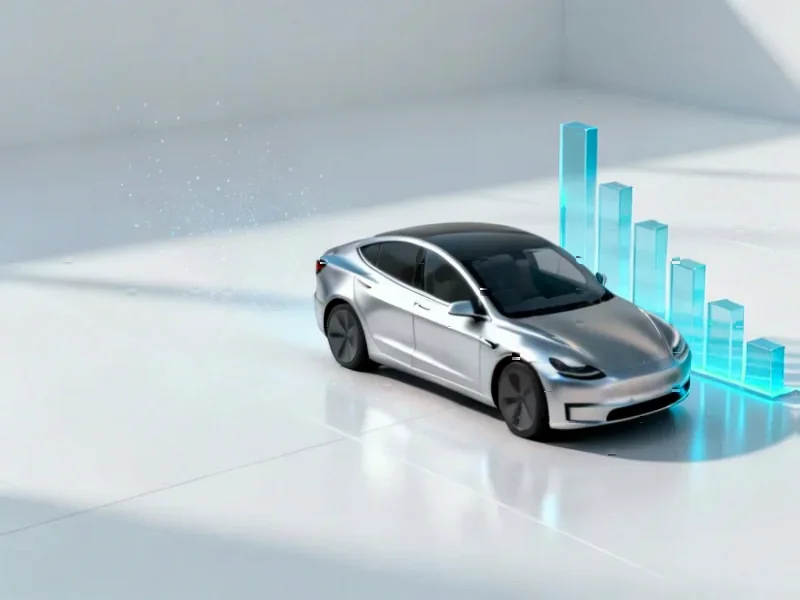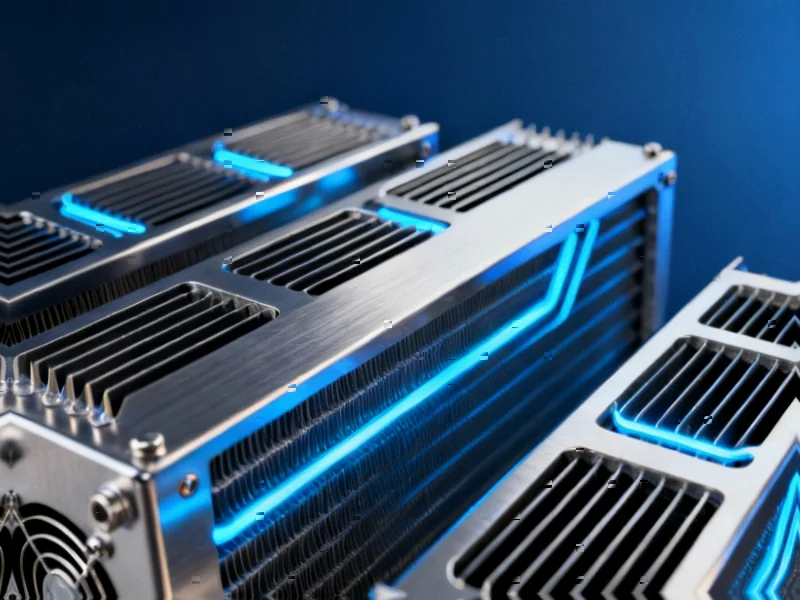Major Funding for Domestic Battery Production
Redwood Materials, a prominent battery recycler and materials supplier, has reportedly secured $350 million in new funding to expand its grid-scale energy storage operations, according to company statements. The funding comes as electricity demand, particularly from artificial intelligence data centers, continues to surge across the United States.
Table of Contents
The investment round was led by venture firm Eclipse, with significant participation from Nvidia’s investment arm, sources indicate. This latest infusion brings Redwood’s total raised capital to approximately $2.2 billion since its founding. While the company hasn’t officially confirmed its valuation following this round, people familiar with the matter suggest it exceeds $6 billion.
Strategic Expansion Plans
According to the company‘s statement, the new capital will “accelerate the expansion of our energy storage deployments, refining and materials production capacity.” Additionally, analysts suggest the funds will support growth in engineering and operations teams as Redwood scales its manufacturing capabilities.
Founded in 2017 by Tesla cofounder and board member JB Straubel, Redwood initially focused on building a domestic supply base for critical battery materials and reducing reliance on Chinese refining capacity. The company began by recovering valuable elements including cobalt, nickel, copper and lithium from used batteries, then supplying these materials to other companies while also manufacturing cathode materials for new cells.
Growing Market Opportunities
“The opportunity’s pretty immense across the board,” said Joe Fath, partner and head of growth for Eclipse, in statements included in the report. Fath highlighted Straubel’s extensive experience and the team’s background, noting that “most of the C-suite there came out of Tesla and they cut their teeth, not just in the EV business, but they were kind of the leaders in the energy storage business.”
The company recently partnered with General Motors to obtain lithium-iron phosphate (LFP) battery cells for large-scale energy storage systems that are in high demand by utilities and AI data center operators. According to industry analysis, LFP cells are preferred for large energy storage applications not only due to lower costs compared to traditional lithium-ion cells, but also because they present reduced fire risks.
Industry Context and Competition
Redwood isn’t alone in pursuing growth in the energy storage sector. Tesla reportedly noted that its Megapack battery storage systems were a particular bright spot in the third quarter, with values rising 44% to $3.5 billion, according to recent company announcements.
Meanwhile, electricity prices have spiked, rising at more than double the rate of overall inflation, analysts note. This has created increased demand for large batteries to store electricity generated from renewable sources like solar and wind farms, as well as from natural gas turbines. Power-hungry AI data centers have been identified as a major driver of this increased electricity demand.
The company stated that it is “creating a new generation of U.S.-made energy storage systems — scalable, low-cost, and designed to power data centers, industry, and the grid — reducing reliance on imported LFP batteries,” though specific pricing and operational details weren’t provided in the announcement.
Related Articles You May Find Interesting
- European Aerospace Giants Forge Alliance to Compete in Global Space Race
- Aluminum’s Energy Revolution: How a Boston Startup Is Turning Scrap Metal into I
- Europe’s Aerospace Giants Forge New Space Alliance to Challenge SpaceX Dominance
- Synthetic Medical Imaging Framework Rivals Federated Learning in Multi-Instituti
- Strategic Allies: How Corporate VCs Are Reshaping Climate Tech’s First-of-a-Kind
References
- http://en.wikipedia.org/wiki/Tesla,_Inc.
- http://en.wikipedia.org/wiki/Electric_battery
- http://en.wikipedia.org/wiki/Energy_storage
- http://en.wikipedia.org/wiki/Data_center
- http://en.wikipedia.org/wiki/Electric_vehicle
This article aggregates information from publicly available sources. All trademarks and copyrights belong to their respective owners.
Note: Featured image is for illustrative purposes only and does not represent any specific product, service, or entity mentioned in this article.



